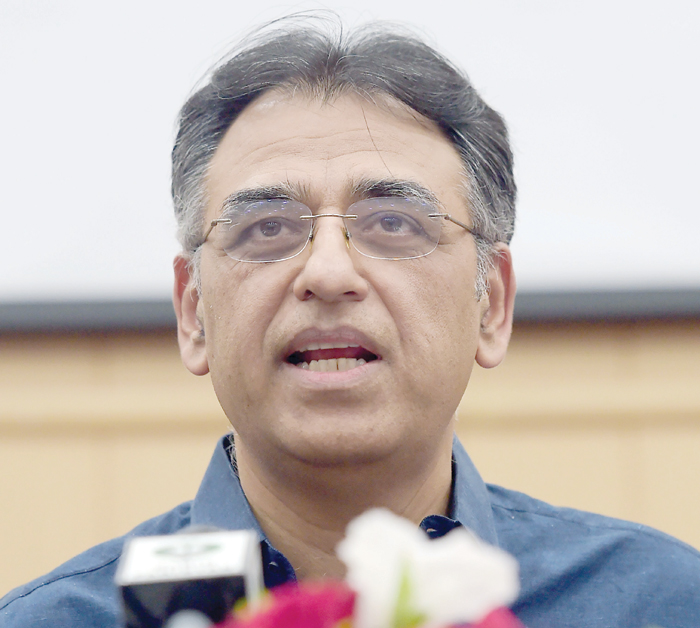

ISLAMABAD: Pakistani Finance Minister Asad Umar on Thursday said he would step down in a cabinet reshuffle by Prime Minister Imran Khan, raising fresh questions on plans for averting an economic crisis amid bailout talks with the International Monetary Fund.
Speculation of the departure was rife for months, with some business groups and investors unhappy at Umar’s strategy of seeking short-term loans from China and Saudi Arabia. instead of finalising an IMF rescue package after Khan assumed power in August.
Umar has been leading negotiations with the IMF for what would be Pakistan’s 13th bailout since the late 1980s, but has faced criticism over a worsening economic outlook on his watch.
The central bank last month cut growth forecasts and raised interest rates with inflation at a five-year high. The rupee currency has weakened about 35 per cent since December 2017.
Umar said he was asked to quit on Wednesday night and turned down the energy portfolio offered by Khan.
“I told Imran Khan that I wouldn’t continue to be part of cabinet,” Umar told reporters in the capital, Islamabad, adding that he expected more cabinet changes in the next few days.
Umar said Pakistan would go into an IMF programme but warned his successor of a tough job ahead with many difficult decisions, and urged the public to be patient.
“The next budget will be a difficult one,” he added, referring to annual spending plans for the financial year ending June 2020 due to announced in May. “No one should expect from the new finance minister that things could be better in three months’ time.”
Umar, the former chief executive of Engro, Pakistan’s biggest private conglomerate, said he strongly believed Khan was the best hope for the country.
Khan’s government has got temporary relief from allies who offered short-term loans worth more than $10 billion to buffer foreign currency reserves and ease pressure on the current account. But it has not been enough. — Reuters
Oman Observer is now on the WhatsApp channel. Click here



